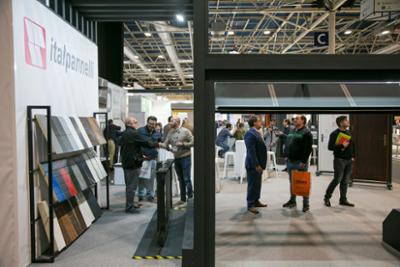

Rafael del Castillo (AEPA): The manual and automatic door sector is a key contributor to the safety and efficiency of Spanish industry.

The manual and automatic door sector is crucial to Spanish industry because it provides safety, efficiency, automation and regulatory compliance, says Rafael del Castillo Suárez Inclán, secretary of the Association of Manual and Automatic Door Manufacturers (AEPA), in the following interview. The AEPA representative, who is also a member of the organising committee of SMART DOORS 2024, explains that the sector brings together approximately 8,000 companies in Spain with diverse activity profiles, employs around 30,000 people and has an annual turnover of over 1.2 billion euros, according to the data he provided.
What is the importance of the manual and automatic door sector in the Spanish industrial context?
The manual and automatic door sector plays a pivotal role in the Spanish industrial landscape, offering a multitude of benefits like safety, greater efficiency, automation and regulatory compliance. Firstly, doors play a fundamental role in safeguarding industrial facilities and ensuring the safety of workers and assets. Furthermore, they enhance operational efficiency by facilitating expedient and regulated access to various areas of the facility.
Thirdly, the implementation of door automation facilitates the modernisation of industrial operations, thereby enhancing productivity and reducing costs. Finally, it is of paramount importance in the industry to comply with safety and accessibility regulations. To comply with the stringent occupational health and safety regulations, it is essential to use the correct doors, which have been properly risk assessed.
In conclusion, the manual and automatic door sector plays a pivotal role in Spanish industry, enhancing safety, operational efficiency, and automation, while also ensuring compliance with occupational health and safety regulations.
Approximately how many companies and workers are currently employed in the sector in Spain, and what is the current turnover?
The sizing of the manual and automatic door and automation industry in Spain is a challenging task that has yet to be completed. The coexistence of manufacturers with small workshops, which in many cases do not declare their turnover figures because they are self-employed, makes the task impossible, but it is nevertheless relevant. Nevertheless, there are available successive approximations and estimates. The estimate of the National Federation of Manufacturers, Installers and Maintainers of Automatic Doors (FIMPA), of which AEPA is a member, is particularly noteworthy. According to his estimate, this sector brings together around 8,000 companies in Spain, with different activity profiles and sizes, including manufacturers, distributors, installers and maintainers. Of these, approximately two hundred companies are engaged in manufacturing activities, in addition to the smaller workshops that have been previously identified.
The number of employees in the main manufacturing companies is estimated to be approximately 6,000, while the figure for the entire sector is estimated by FIMPA to be approximately 30,000. The number should include door installation and maintenance companies as well as distribution and marketing companies.
It is estimated that the sector generates its turnover from both door manufacturing and automation, as well as complementary activities such as installation and maintenance. This would easily be around 1.2 billion euros in 2024. To ascertain this figure, we have considered the turnover declared in the annual accounts of the principal door and automation manufacturing companies. In 2017, the reported turnover was 975.78 million euros. The sector's turnover is estimated to be more than 1.2 billion euros per year, based on the observed increase in prices of construction products over the last seven years, particularly in recent years. This figure is further influenced by the maintenance of installed doors and the considerable number of doors manufactured in small workshops throughout Spain.
How might one assess the growing process of door automation, which is also taking place in industry?
The expansion of door automation within the industry is regarded as a beneficial development, offering advantages in terms of efficiency, safety, accessibility and technology. The implementation of door automation facilitates the streamlining of access and egress processes, thereby enhancing operational efficiency. Furthermore, automatic doors are frequently equipped with sophisticated safety systems that mitigate the risk of accidents and enhance the security of the premises. Thirdly, the facilities make accessibility easier for individuals with reduced mobility, in accordance with the relevant universal accessibility regulations. Finally, technology’s integration into automated doors allows for more efficient remote control, monitoring and management.
What role do automatic doors play in promoting hygiene and public health?
In the current environment around the spread of contagious diseases such as COVID-19, automatic non-contact doors have become even more crucial. The doors serve to minimise the necessity for contact with common surfaces, thereby reducing the transmission of germs and viruses. This has the effect of promoting safer and more sanitary environments in various public and commercial spaces.




